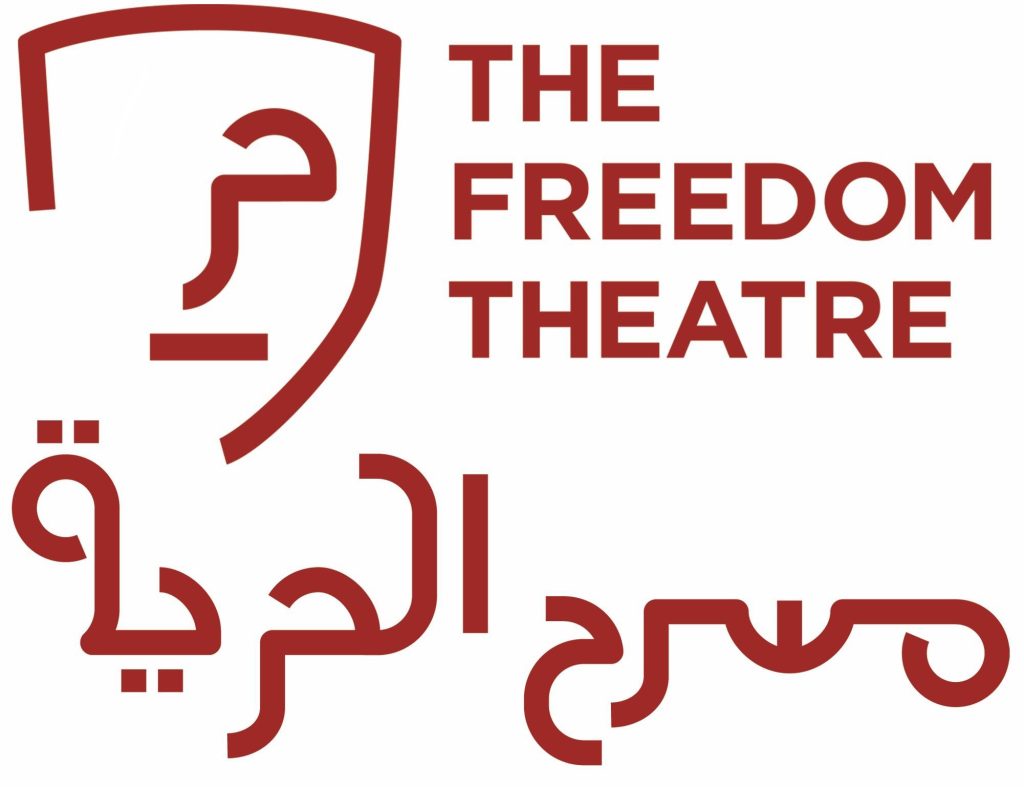Ahmed, you have been on a world tour with your play And Here I Am, and you have been to very different countries – Egypt, Norway, Emirates, Zimbabwe, Great-Britain… Can you tell us something about your experience, taking your play abroad?
“I think it’s interesting to be invited, especially with this production, because it’s not a classic play or a formal story. It’s the story of my life, and I was not sure if it would be interesting for everyone to hear this story – just a guy from Jenin Camp, who tells about his life.
So each time I am invited, it’s exciting to see that the story does work. People find it interesting and want to bring it to their country. That makes me proud of the production itself, when people ask you to perform your play as a professional artist – not just as a special kind of project.
It’s very nice to see that, through the play, people get to know the story and the kind of life we, Palestinians, live. Because before, I would think that everyone knows about our life, but I came to realise that many people still don’t know what is going on in Palestine.”
From what I understand, you received enthusiastic responses wherever you performed. Did you get different reactions in different countries?
“Luckily, people love the play. But to be honest, at some point in every show, I get scared because I can’t feel what the audience feels and thinks about the play. And I don’t want to be a victim on the stage, I don’t want people to look at me and see my life as misery. So each show, I didn’t expect anything when I noticed the audience was silent. But each time, when the show was finished people were standing and clapping, and I didn’t expect that. This really gives me the energy to be able to perform it over and over again.”
So this international tour confirmed that your personal story somehow also is a universal story, that people recognise themselves in it, not just Palestinians?
“Exactly, when you see the play, you see a child who grew up in this kind of area, by which I mean the whole West Bank, full of refugee camps. A lot of people grow up in the same situation. What possibility do these people have, to choose their lives and what they want to be? So my story, I think it’s the story of hundreds of thousands people, young people in Afghanistan, in Yemen, young people in Arab countries, in -let’s say- third world countries.
The question to the world is, what do you expect young people to become, when they grow up in a situation such as in Palestine? It’s not because you want this, but because this is the situation in which you grew up. I didn’t have another chance to be anyone else, but when I got the chance, I became different. So what I want to say is, when you give people the chance, they will be different. You don’t become a refugee because you want to. You don’t choose it.”
You are still young, and I can imagine you have future plans. Can you tell us something about your future plans, maybe with And Here I Am, or any other plays?
“I don’t feel young, but there are definitely plans. My work will always talk about responsibility, for myself, and for the situation that is going on around me. I want to tell stories that make people think or make people question what is going on, in a beautiful and theatrical ways. Because that’s the way for me, I don’t believe in guns anymore. I believe in making people change. For me, being successful is if I could change maybe one person’s mind. I believe in people changing, when they decide for themselves to be different.
I hope to continue performing And Here I Am, any place we will be invited to. I am also thinking about a new project, but I cannot tell you anything about it yet. What I can share, is that I will go to South Africa in June to work with street children. There is a festival, and these children come each year to the entrance of the festival, they dress up as clowns and try to make some money from the audience, for their families. This is not part of the festival, but this year the festival asked me to come and teach and train them, and to prepare a show with them.
And there are of course many ideas, as an individual artist, but also in collaboration with The Freedom Theatre, so we are always thinking about new things…”
Read the previous interview with Ahmed Tobasi here!
